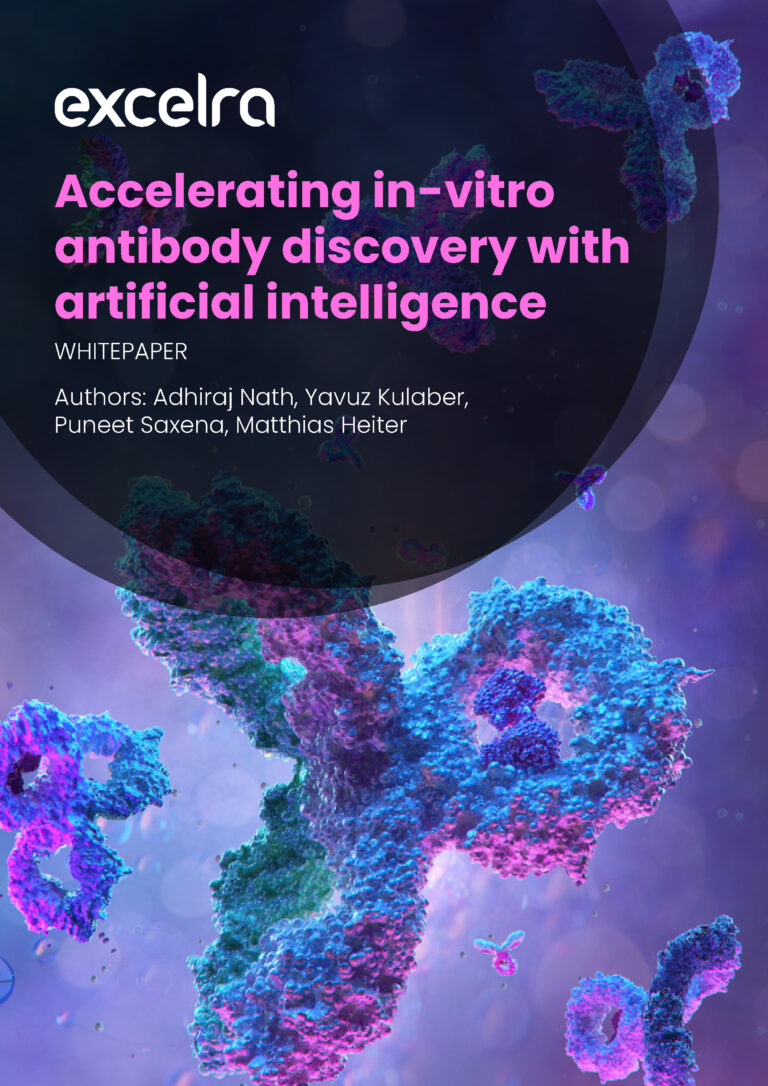Antibodies have revolutionized the treatment landscape for autoimmune diseases, cancer, and viral infections—emerging as one of the most promising classes of therapeutics. Traditional in-vivo antibody discovery methods, however, are limited by ethical concerns and reduced immunogenicity in animal models. Enter in-vitro antibody screening—a next-generation approach combining phage display biopanning and next-generation sequencing (NGS) to discover high-affinity binders with greater precision.
At the cutting edge of this transformation is Excelra’s AI-powered platform, which enhances the antibody discovery process through proprietary algorithms, delivering faster, cost-effective, and more accurate results.
In this whitepaper, you will discover:
- How phage display and NGS work together to identify high-affinity antibodies without the ethical and scientific limitations of in-vivo methods
- The science behind biopanning and how it enriches libraries of antibody sequences over multiple rounds
- The introduction of AbScore – a novel ML-derived metric that predicts antibody affinity using CDR3 amino-acid sequences
- How AbGen, a generative AI model, designs novel CDR3 regions predicted to bind with greater strength than experimental counterparts
- A detailed look at Excelra’s end-to-end AI-powered workflow for in-silico antibody screening and CDR3 design
- Real-world data demonstrating the efficacy of AbScore and AbGen in optimizing biopanning outcomes
Whether you’re working on monoclonal antibody development, exploring therapeutic antibody design, or seeking innovation in antibody library screening, this whitepaper offers valuable insights backed by data and AI. If you’re aiming to accelerate your antibody discovery pipeline or reduce costs through machine learning-based antibody screening, this whitepaper is for you.
Download your free copy now to explore how Excelra is shaping the future of AI-assisted antibody development.



